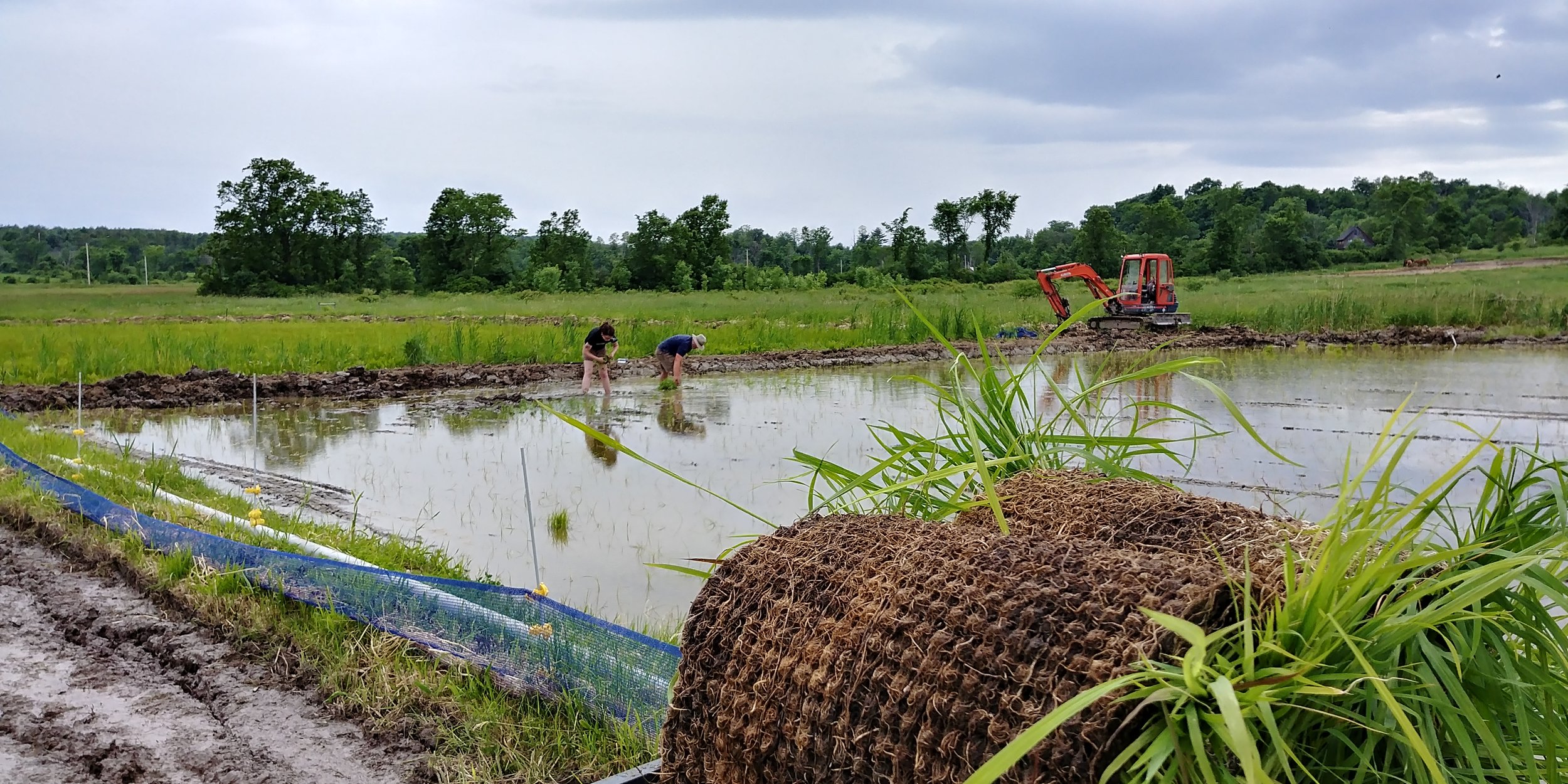
Rice
An ancient cropping system
with a bright future in New England.
"We have the most boring dinner table conversation in this family. It's always Religion in America, Ancient Romans, or Duck - Rice." --Julien Andrus, at age 7
The long and the short of it is that my wife Erica and I chose to live and work in Ferrisburgh, Vermont because we have a kind of faith in the place. I knew from a young age that I wanted to become a farmer and had been slowly working towards that goal as an adult. In 2005, when Erica and I were newly married, with the above-quoted Julien on the way we bought this piece of Champlain Valley bottomland and built a new house adjacent to the pre-existing dairy barns and outbuildings. The land we acquired was part of the prior Burroughs Farm lands that had largely been sold off for house lots, leaving a large, wet central section with little road frontage.
Frankly, as agricultural land, our farm is hard to love. The soil is heavy and difficult to work. Even moderate moisture will cause it to clump up on your shoes, giving you the "Addison County Snowshoe" after just a few steps. The flat topography means that excess water takes an awful long time to go away. Nevertheless, our land persistently produces good hay and grazing grass and we figured it was the best farm we could afford and that we would make it work somehow.
I have always enjoyed cereals, both aesthetically and as food. I've always found particular meaning in how traditional agricultural communities rally around the life cycle of a locally important crop. I really wanted to make cereal cropping an underpinning of the reinvented farm.
Being a lover of bread and beer my first choices were wheat and barley. While some farmers in my area, like Ben Gleason and Tom Kenyon have achieved successes in this locality with wheat, I soon found the risk factor made it a poor pursuit in my case. Getting dry enough conditions to plant and to harvest was dicey, and worst of all, a heavy rain during the flowering stage could infect the whole crop with a fungus known as fusarium head blight, which is endemic to the area. I had problems growing wheat one year out of two in our early years here, and never made any profit growing it even in a good year.
a panicle of ripening rice, late summer
In 2010 I heard about the work of Takeshi and Linda Akaogi, who had been running trials of Japanese rice varieties in Westminster West, Vermont. This got me immediately excited because I had lived in Northern Japan for a while some years ago and knew that rice could be grown in a temperate area. While the area I lived in, Miyagi Prefecture, had a Pennsylvania-like climate, I also knew that rice was grown into the Hokkaido area, where the climate is very similar to Vermont's. I attended a workshop at a NOFA conference that Takeshi offered and decided then and there that I would try to create a small commercial scale pilot operation for rice. Eleven years later we are still dedicated to this goal!
Today we have six acres of irrigated rice paddies in the heart of the farm and at work on further expansion in New Haven. Ours is still is a very small farm by Japanese standards (and absurdly small by Southern or California rice farming standards!) but is, I believe, currently the largest rice installation in the Northeast. We manage weeds and fertility using a method known as "aigamo," or "duck and rice farming" in Japan. Variations of this method are found in many rice growing countries! Young ducklings are introduced into the newly-transplanted rice fields where they eat and trample weed competition. They don't harm the rice plants because the leaves are high in silica and are unpalatable to ducks. This is a fascinating multifaceted method that we are fully committed to refining.
We have a small drying and milling facility and do all our own processing, using specialized machinery imported from Japan. All of our rice varieties are Northern Japanese short grain rice suitable for sushi or general table use. We can mill white or brown rice of excellent quality.
ducklings hard at work helping grow beautiful rice!

